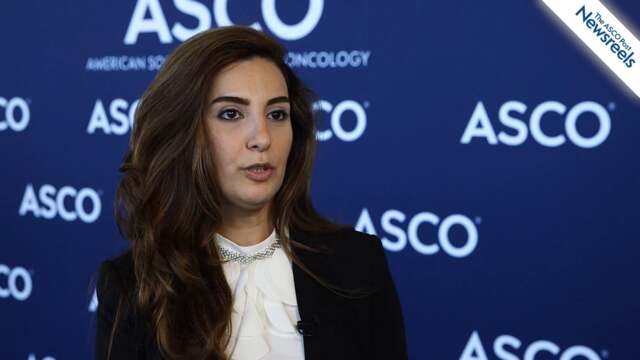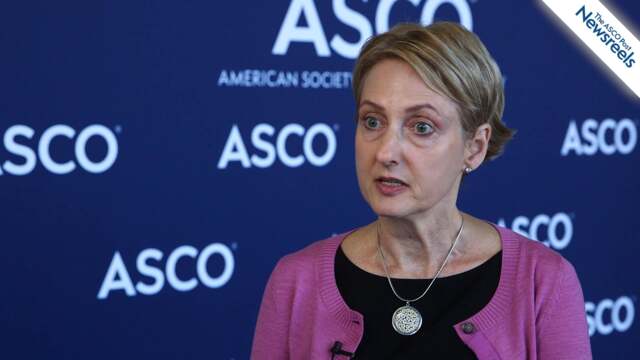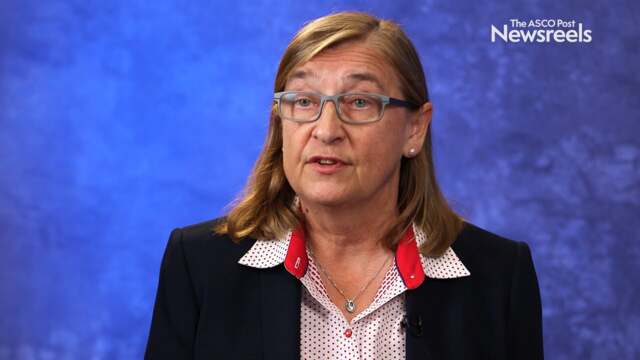Howard S. Hochster, MD, on Colorectal Cancer: Results From the E7208 Trial
2018 ASCO Annual Meeting
Howard S. Hochster, MD, of Rutgers-Cancer Institute of New Jersey, discusses study findings on irinotecan and cetuximab vs irinotecan, cetuximab, and ramucirumab as second-line therapy of advanced colorectal cancer following oxaliplatin and bevacizumab-based therapy (Abstract 3504).
Geertjan Van Tienhoven, MD, PhD, of the Dutch Pancreatic Cancer Group, discusses phase III study findings on preoperative chemoradiotherapy vs immediate surgery for resectable and borderline resectable pancreatic cancer (Abstract LBA4002).
Julie M. Vose, MD, MBA, of the University of Nebraska Medical Center, and Nathan Hale Fowler, MD, of The University of Texas MD Anderson Cancer Center, discuss phase III study findings on lenalidomide plus rituximab vs chemotherapy plus rituximab, followed by rituximab maintenance, in patients with previously untreated follicular lymphoma (Abstract 7500).
Rita Elias Assi, MD, of The University of Texas MD Anderson Cancer Center, discusses the impact of next-generation sequencing on treatment selection in acute myeloid leukemia (Abstract 103).
Laurie Helen Sehn, MD, MPH, of the British Columbia Cancer Centre for Lymphoid Cancer, discusses phase II study findings on polatuzumab vedotin with bendamustine and rituximab in relapsed or refractory follicular lymphoma and diffuse large B-cell lymphoma (Abstract 7507).
Helena Margaret Earl, MBBS, PhD, of the University of Cambridge, discusses phase III study findings on 6 vs 12 months of adjuvant trastuzumab in patients with HER2-positive early breast cancer (Abstract 506).





